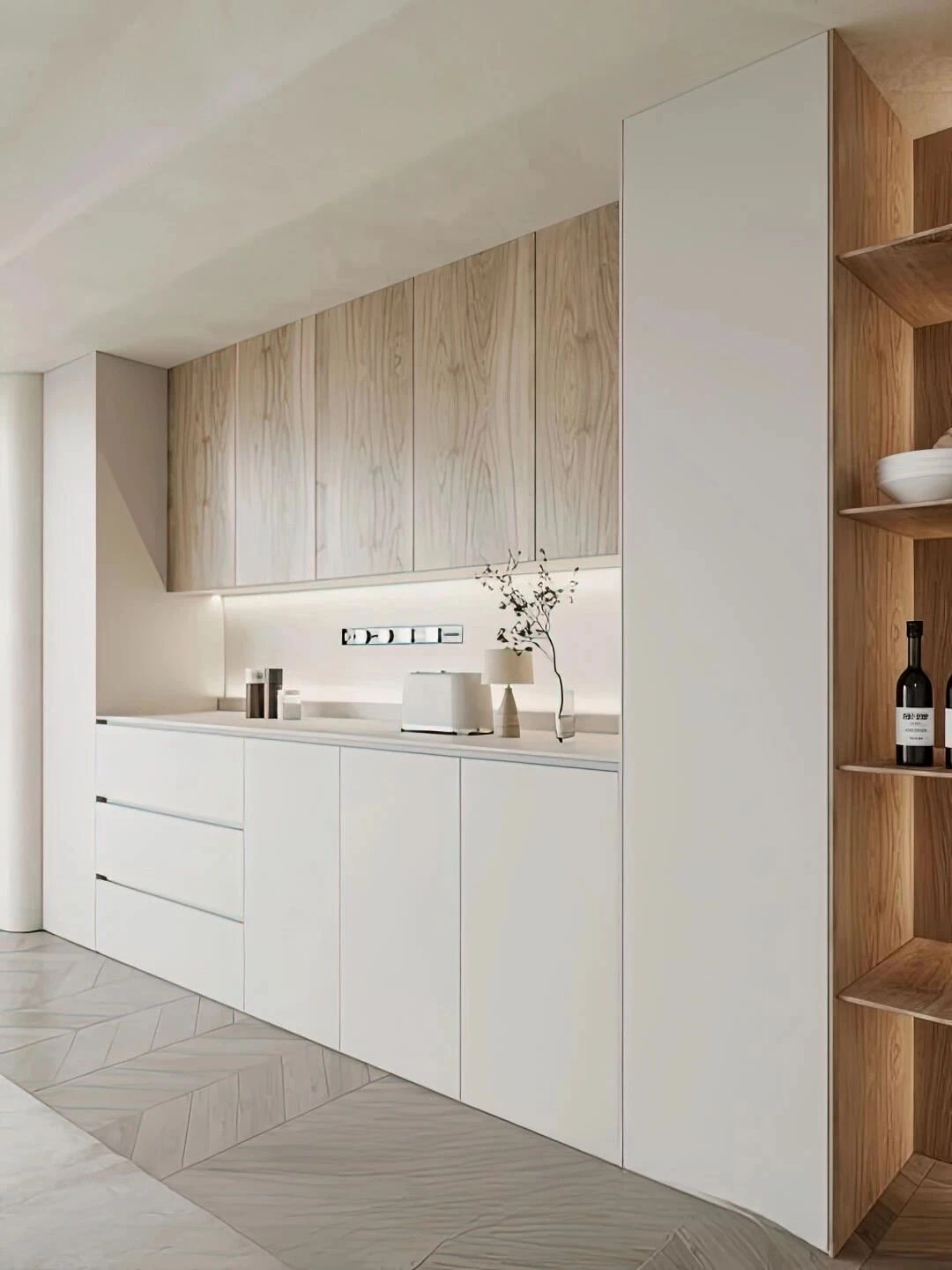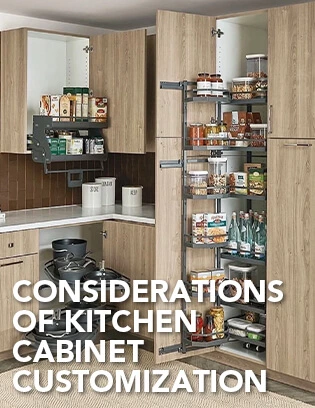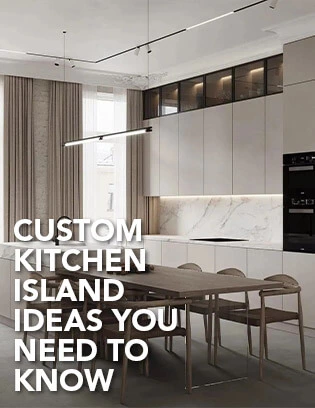5 Basic Considerations for Customizing Your Kitchen Cabinets
Cabinets are the backbone of any kitchen. Beyond their basic role in storage, they shape the room’s style, flow, and function. While most people focus on looks, function, and quality, the real magic lies in the finer details. Here’s what to keep in mind to create a kitchen that’s both beautiful and brilliantly efficient.
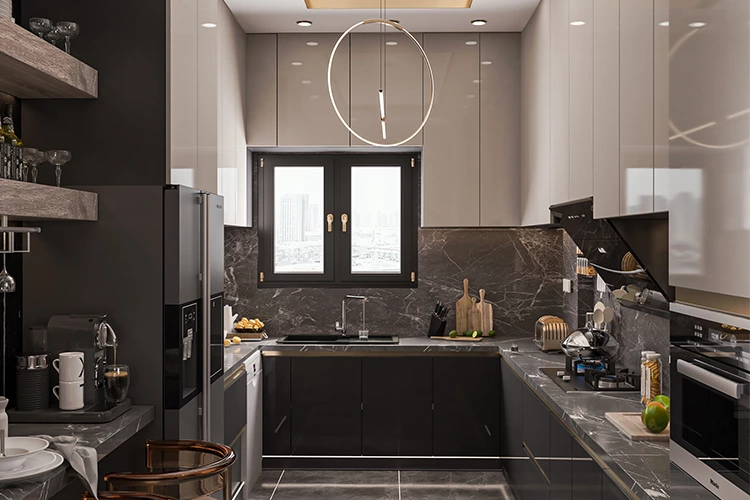
Plan the Space
Before falling in love with any cabinet style, take a step back and plan your kitchen layout thoughtfully. Accurate measurements are a must, but don’t stop there—think about how you move around your kitchen and how your cabinets can support that flow.
Corners: Corners often go to waste, but installing options like L-shaped lazy Susans, swing-out shelves, or blind corner pull-outs can unlock hidden storage for pots, pans, or pantry goods.
Height: Customize cabinet height based on who’s using the kitchen. No one wants to wrestle with a top shelf every day. Tall users might benefit from higher upper cabinets, while shorter users may prefer pull-down shelving or step stools integrated into the toe kick.
The Work Triangle: The ideal kitchen layout keeps the stove, sink, and fridge in a triangular setup—about 4–9 feet apart each—to reduce unnecessary steps. For instance, keep your prep tools and knives near the sink, and place your spices and utensils close to the cooktop.
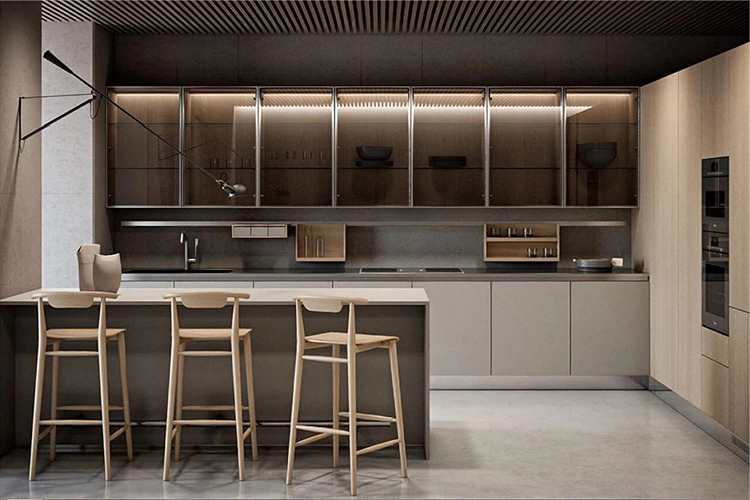
If you're often cooking with family or roommates, consider zones rather than a single triangle — like a dedicated baking corner or coffee station.
Pick the Right Materials
Cabinet materials are not just about looks—they directly impact how your kitchen ages, how much maintenance it needs, and how it performs under pressure.
Solid Wood: Offers timeless beauty and unique grain patterns but needs regular care to avoid warping or damage. Think oak, maple, cherry, or walnut—classic choices with rich textures. They're perfect for a warm, traditional kitchen, but keep in mind that wood expands and contracts with humidity, so it needs consistent care.
Engineered Wood: Includes MDF, HDF, and particleboard—great for modern finishes and budget-conscious renovations. MDF panels, for example, offer a smooth surface ideal for painted cabinets and resist warping better than solid wood.
Laminate and Thermofoil: These materials wrap around MDF or particleboard cores. They're easy to clean, come in countless styles, and are great for colorful, contemporary kitchens.
Textured Melamine with 3D Grain: Provides the warmth of real wood with better stain, heat, and water resistance—and zero maintenance.
Metal Cabinets (Steel or Aluminum): Popular in professional or industrial-style kitchens. They resist heat, moisture, and impact—but can scratch or dent, so matte finishes or brushed textures are safer options.
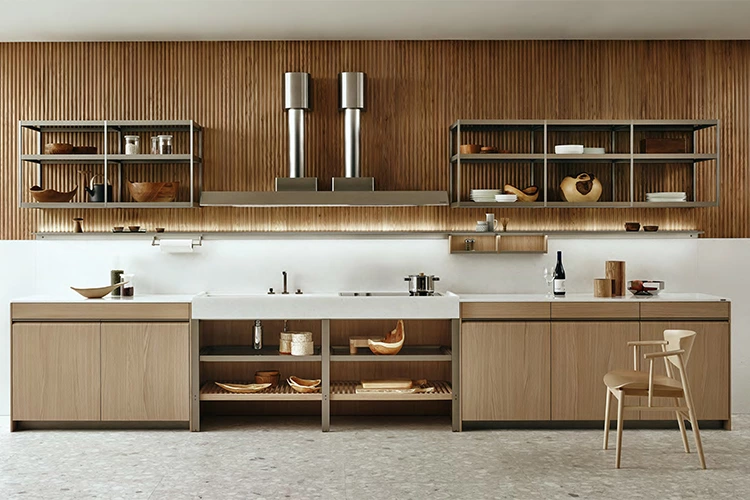
Quality Checks to Watch For:
Hinges and Slides: Soft-close hinges and full-extension drawer slides feel luxurious and prevent slamming.
Cabinet Box Construction: Look for plywood boxes over particleboard for greater strength.
Moisture Resistance: Especially for under-sink cabinets, choose materials with PVC edge banding or water-resistant coatings.
Design with Style and Substance
Cabinets set the tone for your kitchen’s entire look. Whether your style leans classic, modern, or somewhere in between, the right design touches make all the difference.
Door Styles:
Shaker: Clean lines, great for transitional or modern farmhouse styles.
Flat Panel/Slab: Sleek and minimal, ideal for contemporary kitchens.
Raised Panel: More traditional or ornate, perfect for classic interiors.
Cabinet Finishes: Go for natural wood stains to highlight grain, painted finishes (like navy or sage green) for character, or high-gloss lacquer for ultra-modern flair.
Hardware Options: From matte black bar pulls to brushed brass knobs, handles bring personality and function. For a streamlined look, consider push-to-open systems with no visible hardware.
Countertop Pairing:
Quartz: Durable, low-maintenance, works with almost any style.
Stainless Steel: Industrial-chic and heat-resistant.
Butcher Block: Warm, cozy, and ideal for avid home chefs.
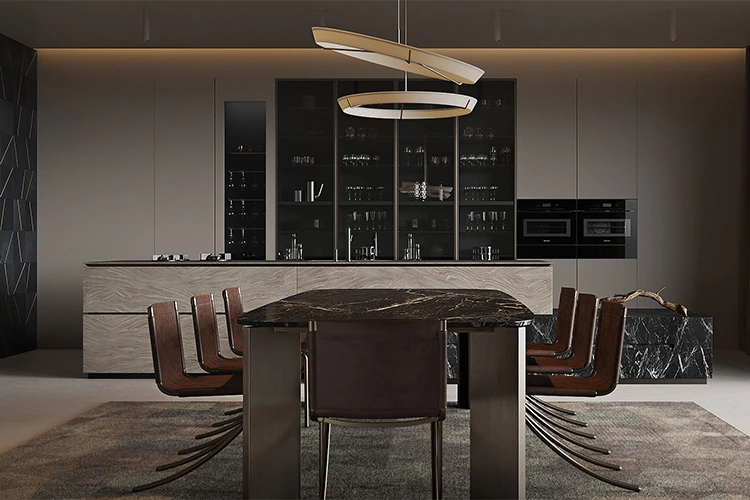
Style Upgrades with a Twist:
Mixed Materials: Combine matte metal doors with wood veneer, or acrylic with frosted glass for layered texture and depth.
Floating Cabinets: Wall-mounted base units create an airy, open feel—especially popular in modern and small-space kitchens.
Slatted Wood Accents: Vertical slats on doors and side panels add a warm, Scandinavian touch while concealing ventilation or speaker panels.
Integrated & Hidden Functions:
Built-in Wireless Charging Pads: Discreetly integrated into countertops or drawer surfaces for powering phones or tablets.
Sliding Countertops or Covers: These allow the countertop to slide over a sink or stove, doubling as prep space or hiding clutter when guests come over.
Backlit Panels: LED strips behind glass or resin cabinet doors offer ambient lighting and subtle design flair.
Maximize Storage Smarts
Cabinet interiors should be as thoughtfully planned as their exteriors. Great storage solutions make daily tasks smoother and reduce clutter. Forget static shelves — today's cabinets are dynamic systems that adapt to your lifestyle.
Drawer Systems:
Use deep drawers for pots and pans with peg organizers.
Double-layered drawers are perfect for separating cutlery from serving tools.
Add toe-kick drawers under base cabinets for storing flat or seasonal items.
Pull-Out Cabinets:
Narrow pull-outs fit between appliances for spice racks, bottle storage, or pantry items.
Install a pull-out trash and recycling station beneath the sink to hide waste neatly.
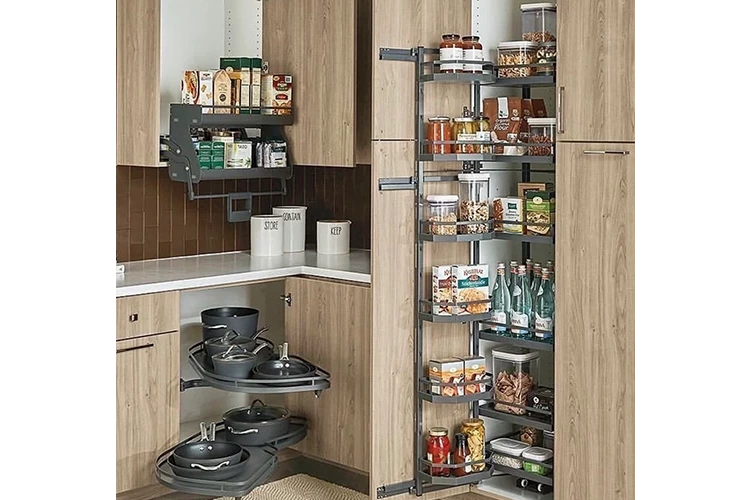
Vertical Storage: Add dividers in tall cabinets for cutting boards, baking sheets, or tray storage.
Storage Innovations:
Vertical Lift-Up Doors: Great for upper cabinets—doors lift and stay open overhead, perfect for tight spaces or when you need to keep cabinets open during cooking.
Sensor-Activated Drawers: Open with just a gentle touch or wave, especially useful when your hands are full or messy.
Pull-Down Shelving Systems: Mounted in upper cabinets, these bring contents down to eye level—ideal for shorter users or elderly family members.
Hidden Pantry Walls: Full-height panels that blend into your cabinetry but reveal an entire walk-in pantry when opened—perfect for clean-line kitchen.
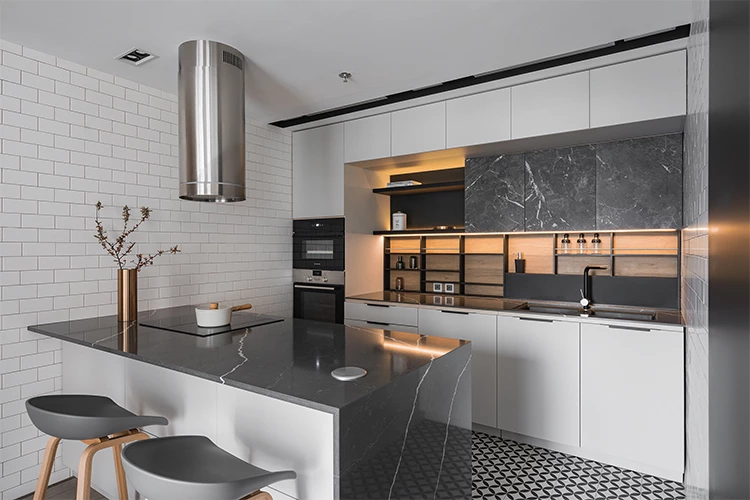
Mind the Little Things
It’s the little things that transform cabinets from good to great. Thoughtful extras improve usability and make your kitchen more enjoyable to use every day.
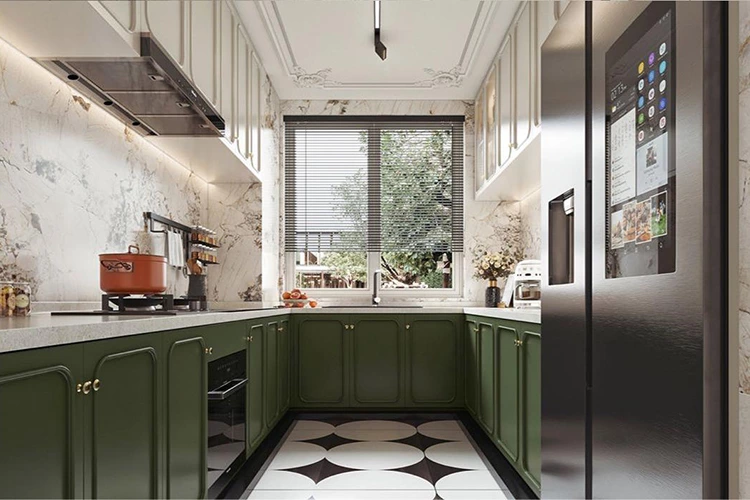
Interior Lighting: Motion-sensor LED strips inside cabinets or drawers illuminate contents without fumbling. Under-cabinet lighting can double as ambient night lighting or task lighting for meal prep.
Soft-Close Features: Hinges and drawer glides that close gently reduce wear and noise—great for families or early risers.
Easy-Clean Surfaces: Choose fingerprint-resistant finishes for dark cabinet doors or glossy surfaces. Seamless countertops and flush cabinet fronts minimize dust traps and make wipe-downs effortless.
